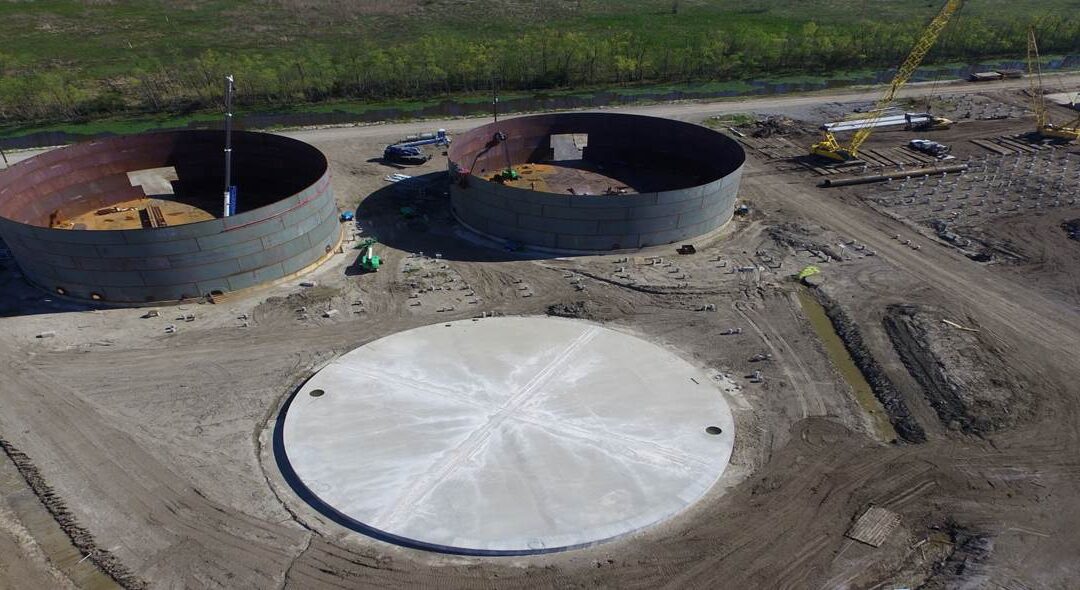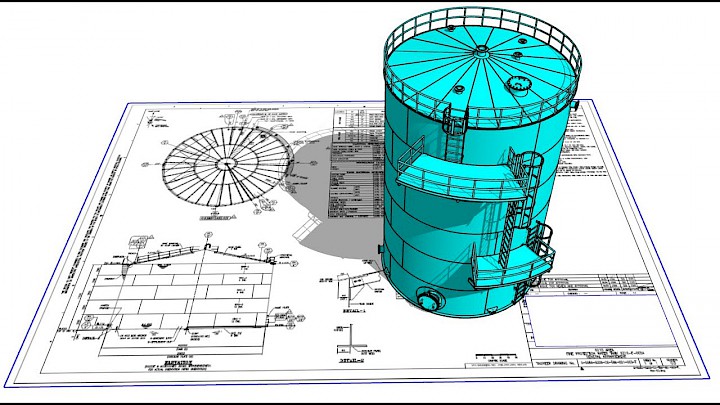The Advantages of Welding Inspection for Boosted Security and Efficiency
Welding examinations are crucial for making sure that structures fulfill rigorous industry standards. They play a critical duty in recognizing flaws early, thereby enhancing security and reducing the danger of catastrophic failures. In addition, these evaluations can result in significant cost savings by avoiding costly repair services and downtime. As companies intend for improved efficiency and reliability, the importance of a robust evaluation procedure can not be overemphasized. What various other advantages might arise from a commitment to complete welding inspections?
Guaranteeing Compliance With Market Requirements
Ensuring conformity with market standards is important for preserving high quality and safety and security in welding tasks. Abiding by recognized protocols not only secures employees however additionally boosts the toughness and efficiency of the end product. Welding inspections carried out at various phases of the procedure help determine any type of deviations from these standards, allowing prompt rehabilitative actions. This aggressive technique mitigates the threat of failings that can result from low-grade craftsmanship.
In addition, compliance with sector criteria fosters depend on amongst stakeholders, including customers, regulative bodies, and the labor force. It indicates a commitment to quality and responsible practices, which can bring about raised company opportunities and an one-upmanship in the marketplace - API 650 Welding Inspection. Regular evaluations likewise ensure that materials and strategies made use of straighten with the most recent technological developments and safety policies. Inevitably, adherence to sector requirements is not merely a regulative need yet a cornerstone of top quality guarantee in welding projects
Enhancing Safety Through Very Early Discovery of Flaws
While the primary goal of welding inspections usually centers on compliance, they play a vital role in boosting security by allowing the early discovery of issues. Identifying problems such as insufficient fusion, splits, or porosity during examinations can considerably reduce the risk of disastrous failures. Early discovery permits timely treatments, making sure that defective welds do not compromise structural integrity.
Additionally, organized assessments foster a society of safety and security within companies by stressing the relevance of top quality control. This proactive approach not only safeguards workers however also safeguards the surrounding setting. Normal assessments can reveal patterns in defect event, permitting for adjustments in welding strategies and training programs to address underlying concerns.
Subsequently, welding inspections act as an essential secure, strengthening overall safety and efficiency by identifying flaws prior to they intensify right into major hazards. This dedication to quality straight adds to the longevity and reliability of welded frameworks.
Reducing Prices by Preventing Failings
By carrying out thorough welding inspections, companies can effectively decrease expenses related to failings and revamp. The aggressive identification of problems during the welding procedure minimizes the threat of disastrous failings that can lead to pricey repairs or substitutes. Early detection enables timely treatments, which stops the escalation of minor concerns right into significant issues that stress budget plans and resources. Additionally, by guaranteeing that welds fulfill specified criteria, organizations can prevent delays in task timelines brought on Bonuses by the need for comprehensive rework or added evaluations later in the procedure. This not just saves money however additionally improves functional performance. A reputation for high quality workmanship can lead to increased client satisfaction and repeat service, further adding to financial stability. Overall, purchasing welding inspections is a calculated approach that promotes cost savings while securing the integrity of welded frameworks.
Improving Efficiency and Durability of Structures


Welding inspections play a vital role in great post to read enhancing the efficiency and longevity of frameworks, as they verify that welds are implemented to the highest possible requirements. By determining flaws early in the welding procedure, examinations protect against weaknesses that could endanger architectural stability. This aggressive technique guarantees that the materials used satisfy called for specifications, consequently maximizing their load-bearing capacity and durability.
Additionally, regular monitoring of welding techniques contributes to the total quality of building and construction projects. When welds are confirmed for conformity with market standards, the capacity for fatigue and failure with time is significantly lowered. Structures that are built with appropriately examined welds are most likely to experience less upkeep issues and enhanced toughness.
Ultimately, extensive welding evaluations not only strengthen the instant performance of a structure yet likewise expand its operational life-span, supplying lasting value to both home builders and end-users alike.
Cultivating a Culture of Top Quality and Dependability
A commitment to high quality and reliability in welding methods substantially adds to the total success of building and construction jobs. When organizations focus on these values, they promote a society that motivates thorough focus to detail and adherence to industry requirements. This culture not only improves the skill degree of welders yet additionally advertises accountability and team effort amongst all stakeholders included in the job.

Normal welding inspections function as a foundation in this cultural shift, reinforcing the importance of regular efficiency and safety steps (API 650 Welding Inspection). By applying rigorous inspection protocols, firms can determine potential flaws early, mitigating risks and avoiding expensive rework. An top article emphasis on top quality and reliability instills confidence amongst clients and partners, leading to stronger relationships and enhanced online reputations.
Connections Eventually, promoting a culture of quality and integrity in welding techniques not just boosts job results but also guarantees long-lasting sustainability and success in the building industry.
Often Asked Questions
What Certifications Should a Welding Inspector Have?
A welding inspector need to possess appropriate qualifications, such as AWS CWI or CSWIP. In addition, they must have experience in metallurgy, welding processes, and evaluation methods, in addition to strong analytical skills and interest to information for effective analyses.
Just How Usually Should Welding Inspections Be Performed?
Welding inspections ought to be carried out regularly, ideally after each significant phase of the welding process. In addition, routine evaluations must take place based on project requirements, solution problems, and regulative criteria to assure ongoing top quality and safety.
What Tools Are Made Use Of Throughout Welding Inspections?
Welding examinations use various tools, consisting of ultrasonic testers, magnetic particle testers, visual assessment devices, and radiographic equipment. Each tool offers a specific function, guaranteeing weld high quality and architectural integrity via extensive evaluation and analysis.
Can Welding Inspections Be Performed Remotely?
Welding examinations can certainly be carried out remotely making use of sophisticated technologies such as drones and specialized electronic cameras. These devices allow examiners to analyze welding high quality and integrity from a distance, improving performance and safety in various atmospheres.
What Are the Common Sorts Of Welding Issues?
Usual kinds of welding issues consist of porosity, splits, insufficient combination, undercutting, and slag incorporation. These defects can jeopardize the stability and toughness of welds, bring about potential failures in structural applications if not addressed appropriately.
Welding evaluations are essential for making sure that structures fulfill strict sector requirements. Welding inspections conducted at numerous stages of the procedure help recognize any inconsistencies from these criteria, allowing prompt corrective activities. Welding evaluations play an important role in improving the efficiency and durability of structures, as they validate that welds are executed to the greatest requirements. Welding examinations must be conducted on a regular basis, ideally after each significant phase of the welding process. API 650 Welding Inspection. Welding examinations make use of different tools, including ultrasonic testers, magnetic fragment testers, visual assessment devices, and radiographic devices